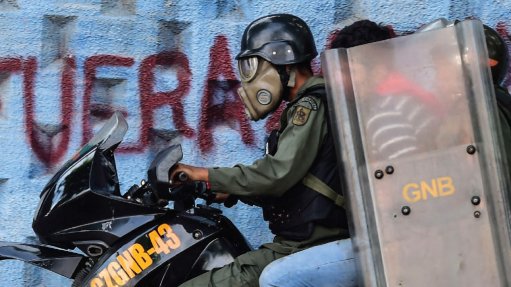
In April 2017, tens of thousands of people took to the streets in Venezuela to protest against the government-controlled Supreme Court’s attempt to usurp the powers of the country’s legislative branch. Demonstrations quickly spread throughout the country and continued for months, fuelled by widespread discontent with the authoritarian practices of President Nicolás Maduro and the humanitarian crisis that has devastated the country under his watch.
The government responded with widespread violence and brutality against anti-government protesters and detainees, and has denied detainees’ due process rights. While it was not the first crackdown on dissent under Maduro, the scope and severity of the repression in 2017 reached levels unseen in Venezuela in recent memory.
Security forces and armed pro-government groups attacked protesters in the streets, using extreme and at times lethal force, causing dozens of deaths and hundreds of injuries. Authorities detained thousands of protesters and bystanders, many of whom have been subsequently prosecuted in military courts.
The crackdown has extended beyond the protests, with government intelligence agents pulling people from their homes or detaining them on the streets even when no demonstrations were taking place.
Once detained, government agents have subjected opponents to abuses ranging from severe beatings to torture involving electric shocks, asphyxiation, and other techniques.
This joint report by Human Rights Watch and the Penal Forum, based on in-country research, documents 88 cases involving at least 314 people who were victims of serious human rights violations during the crackdown between April and September 2017. These abuses were committed by different security forces and armed pro-government groups known as colectivos in Caracas and 13 states—Anzoátegui, Aragua, Carabobo, Barinas, Bolivar, Lara, Mérida, Miranda, Monagas, Sucre, Táchira, Vargas, and Zulia.
Report by the Human Rights Watch and the Penal Forum